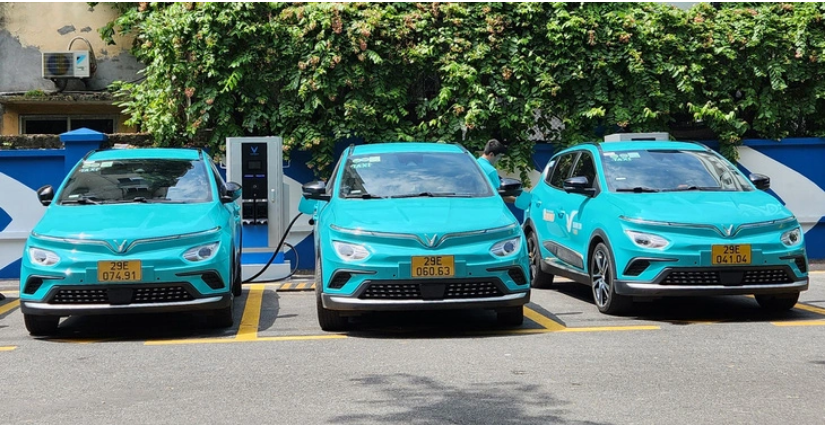The Vietnamese Ministry of Transport has submitted support policies proposed by enterprises for both manufacturers and buyers of electric vehicles (EVs) to the government.
In a statement sent to Deputy Prime Minister Tran Hong Ha, the ministry said that companies suggested supplementing policies meant to promote the development of the electric car market and limiting the use of gas-powered vehicles by increasing emissions standards.
They also proposed adding EV manufacturing, assembling, and battery production to the list of industries entitled to special investment incentives, exempting and reducing import tariffs on equipment, production lines, and accessories for the manufacture, assembly, and repair of EVs and batteries.
They also sought to expand the application of the preferential special consumption tax of three percent to locally-manufactured or assembled EVs with nine seats or fewer after February 28, 2027.
They proposed exempting the value-added tax for the first five years of the program and halving the tax for the following five years.
EV buyers would also enjoy exemptions and reductions to their registration and license plate issuance fees, easier access to credit, and direct price subsidies.
Registration exemptions would be in place for the first five years of the program, from March 1, 2022, and a 50-percent reduction compared with the fee for gasoline- and diesel-powered cars with nine seats or fever for the next two years.
License plate issuance fees would be exempt for the first three years and halved for the next two years.
Buyers would also receive a US$1,000 subsidy for each electric car bought.
Preferential loans were also proposed for transport firms using EVs.
EVs would get priority while operating in urban areas, such as accessing parking and enjoying reduced fees.
Meanwhile, charging stations would enjoy low electricity prices and exemptions on import taxes for equipment and accessories related to station construction.
The Ministry of Transport also suggested exempting land-related taxes and the corporate income tax for charging stations in the first five years and halving the taxes during the next five years.
Across the globe, countries are focusing on three policies to develop their EV markets, including offering incentives to manufacturers, buyers, and EV-related infrastructure, according to the Ministry of Transport.
It affirmed that support policies are needed to encourage the conversion to EVs in Vietnam as the country has been committed to achieving net-zero emissions by 2050 at the COP26 Summit in the UK in 2021.
To realize this commitment, the prime minister approved an action program on green energy transformation and carbon and methane emission reduction in the transport sector.
Under the program, Vietnam will promote the manufacture, assembly, import, and use of EVs, along with charging infrastructure until 2030.
It also expects that all new buses will use electricity and green energy from 2025.
All new taxis will use electricity and green energy from 2030 and all vehicles on roads will be electricity- and green energy-powered by 2050, according to the Vietnam News Agency.
Vietnam currently has only two EV producers and assemblers – Vinfast and TMT Automobile JSC.
Thanh Cong Group and Truong Hai Auto Corporation have also introduced their electric car models to dip a toe into the market.
The number of EVs in Vietnam has increased rapidly to some 12,600 by July 2023 from 167 in 2021.
However, they are mainly passenger cars and buses, the Vietnam News Agency cited the Ministry of Transport as saying.
Like us on Facebook or follow us on Twitter to get the latest news about Vietnam!




















































